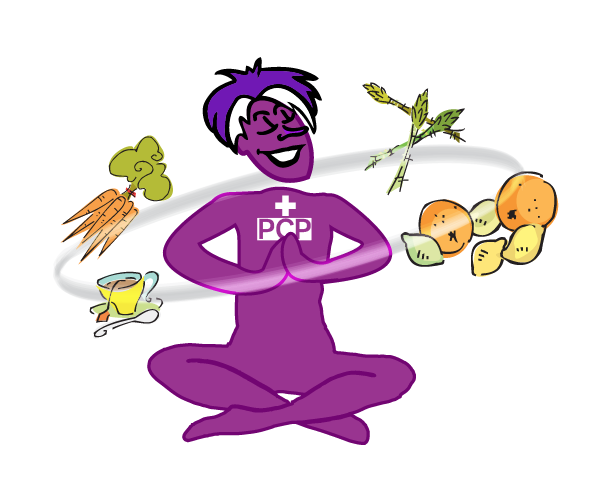“The patient should be made to understand that he or she must take charge of his own life. Don't take your body to the doctor as if he were a repair shop”.
-Quentin Regestein
 Nutritionists and medical experts have been saying for years that keeping a food journal is good for you – it encourages mindful food choices, healthy habits and weight loss. So why don’t most of us actually keep track of what we eat during the day?
Nutritionists and medical experts have been saying for years that keeping a food journal is good for you – it encourages mindful food choices, healthy habits and weight loss. So why don’t most of us actually keep track of what we eat during the day?
Recent research from the Fred Hutchinson Cancer Research Center, published in the Journal of the Academy of Nutrition and Dietetics, supports the importance of food journaling but also points out the difficulty of maintaining the habit.
It's difficult to change a diet if dieters are not paying close attention to what they are eating, researchers said.
"The food journal helps you keep track, in real time, of what you are eating," said McTiernan…
Keith Ayoob, associate professor of pediatrics at Albert Einstein College of Medicine, said food journaling can be difficult because it forces dieters to "confront everything in real time."
"Taking this action can be extremely helpful though, so it's worth it, but it means letting go of some of the spontaneity about eating," he said.
Because of this, people make more informed choices.
If you are interested in keeping a food journal but are worried about the practicality of making it work with your lifestyle, here are a few tips to help you get started.
How to Make Food Journaling a Lasting Habit
1. Find the best medium.
Select a way to record your food journal that will fit easily into your daily routine. If you tend to carry around a small notebook in your purse or pocket for reminders and to-do lists, dedicate a portion of it to writing down your meals and snacks. If you are glued to your smartphone during the day, jot down a few thoughts in a notes app or a specific food journaling app like MyNetDiary and write a more in-depth entry in your personal journal when you get home later.
2. Get in the groove.
Adopting a new habit ("First we form habits, then they form us. Conquer your bad habits or they will conquer you." - Rob Gilbert) takes practice, so create a quick ritual every time you eat. Spend five minutes before or after answering the same questions:
• What did you eat (including any toppings, condiments, additives, preparation, etc.)?
• How much did you eat?
• Where were you? Were you doing anything else besides eating?
• How did you feel when you were eating?
3. Be honest and non-judgmental.
It can be oh-so-tempting to fudge (no pun intended) your journal entries when you make choices you aren’t proud of, but that defeats the purpose of food journaling. Record everything you eat so you can accurately track the trends and patterns in your daily habits and make positive changes for a healthier lifestyle.
From Mari's Health Journal: I met with a nutritionist/naturopath this week and started a healthy eating plan. I am on Day 3 of eating every three hours with the right combo of fats, protein, veggies, grains, nuts and seeds. No glutens. No dairy. And drinking my 64 oz of purified water. BTW, non dairy dark chocolate is considered a protein—to be eaten in 1 ounce blocks in a sitting, not 16 oz bars—this is a big challenge pour moi. Of course I’m keeping a food journal that covers not only what I ate but the psychophysical health strides I’m making. WriteON!
Want more Health and Happiness in your life? Sign up for the 27 Days of Journaling to Health & Happiness Challenge which starts September 3!



Leave Comment